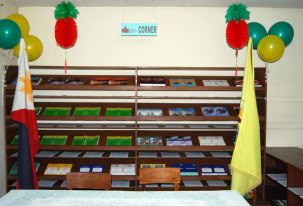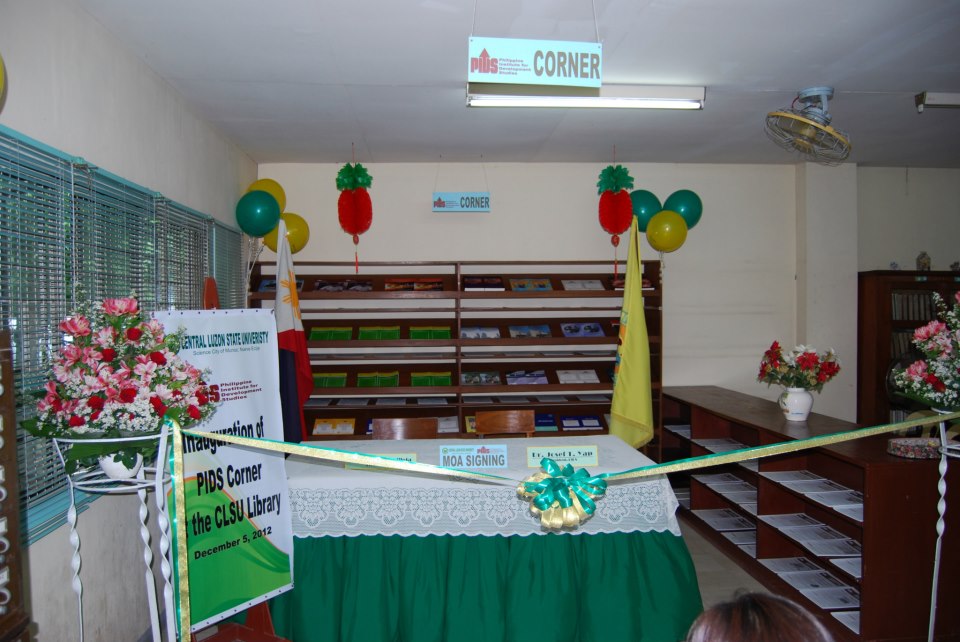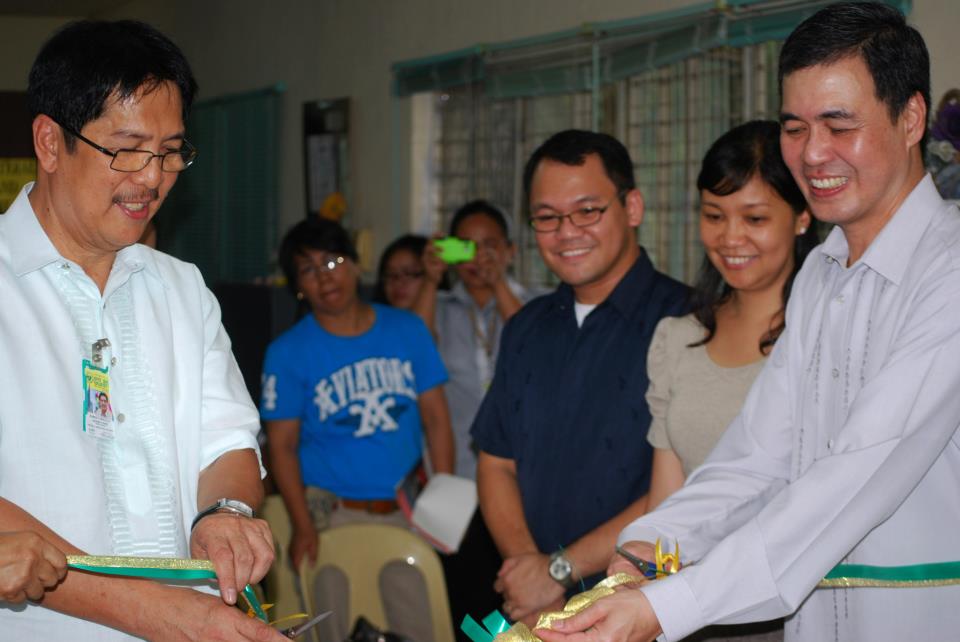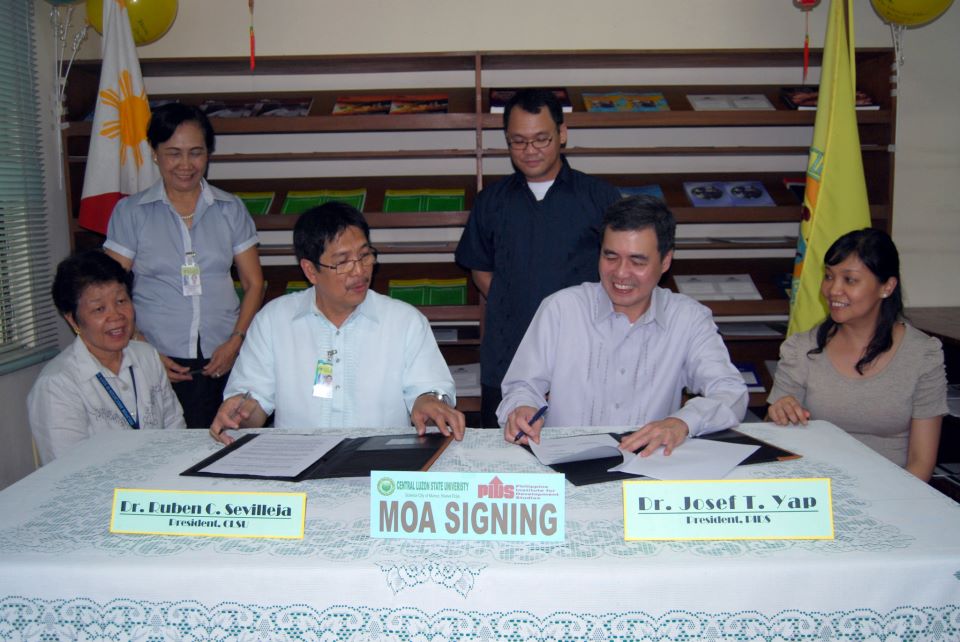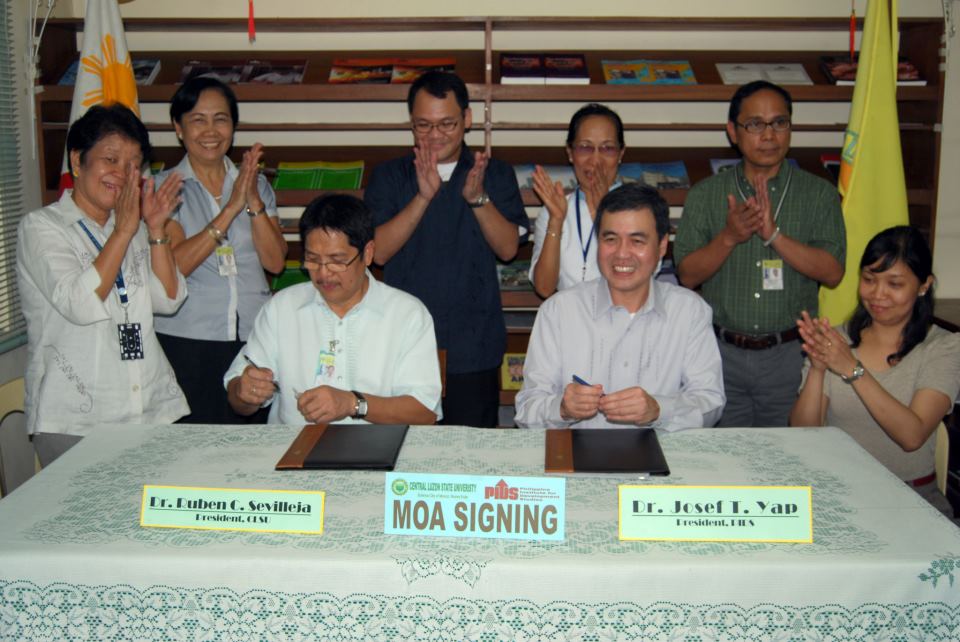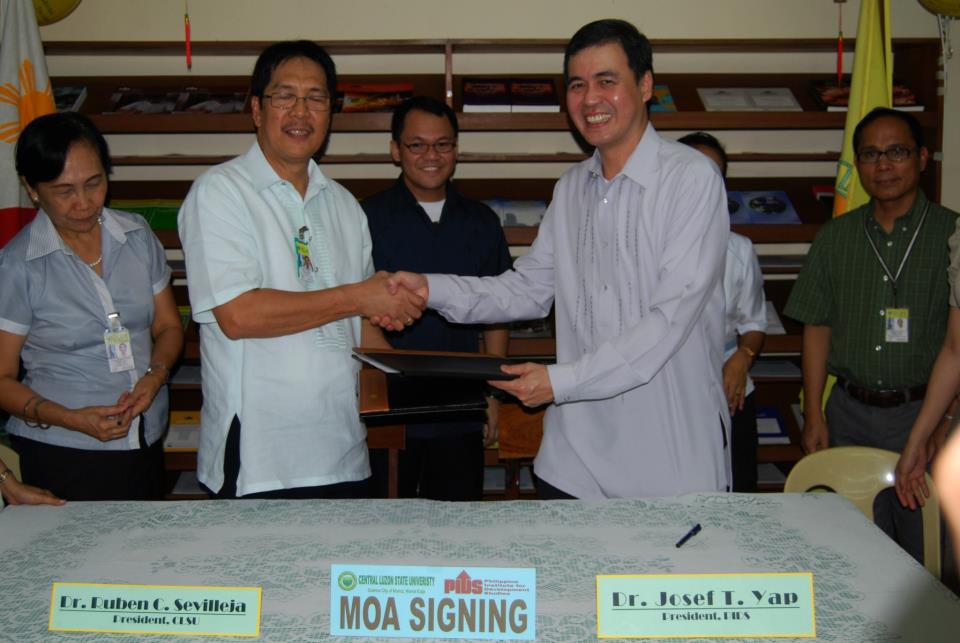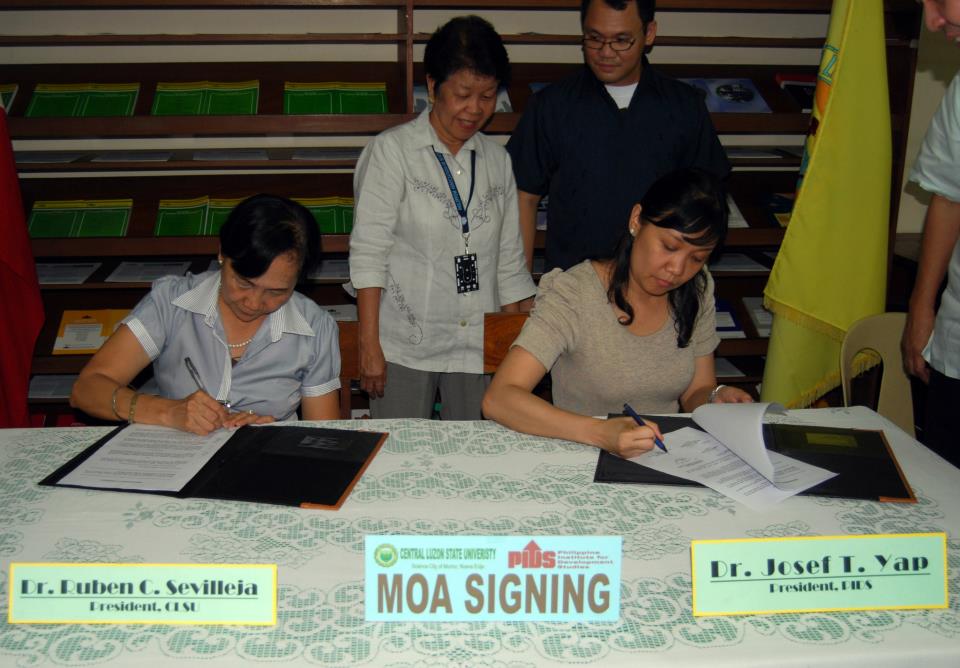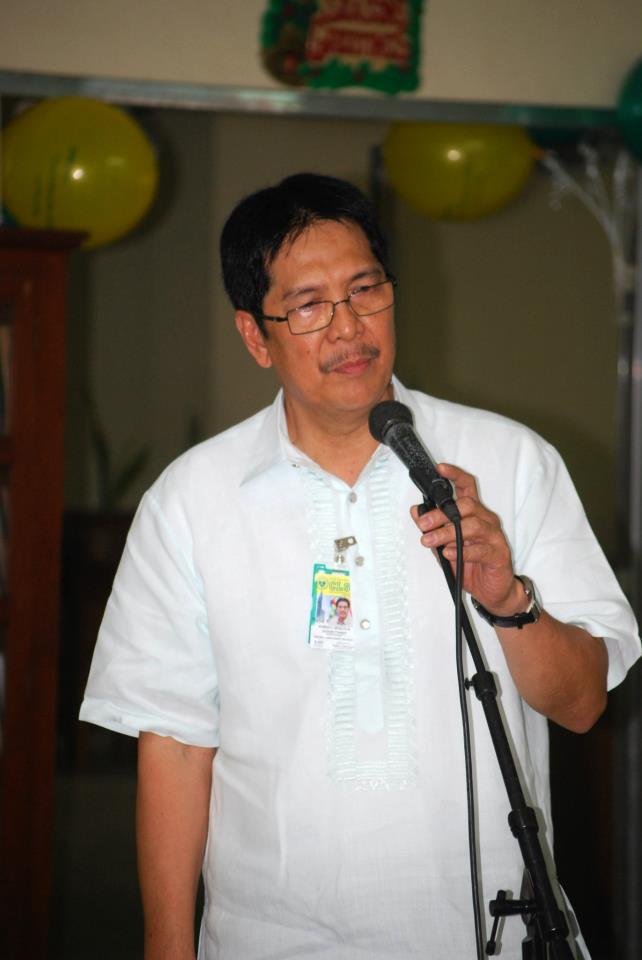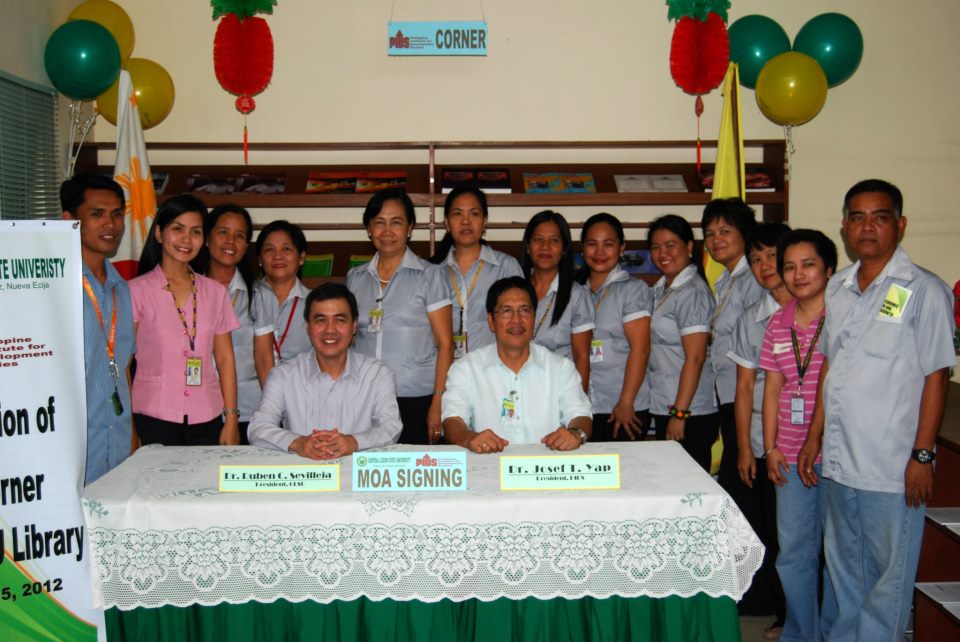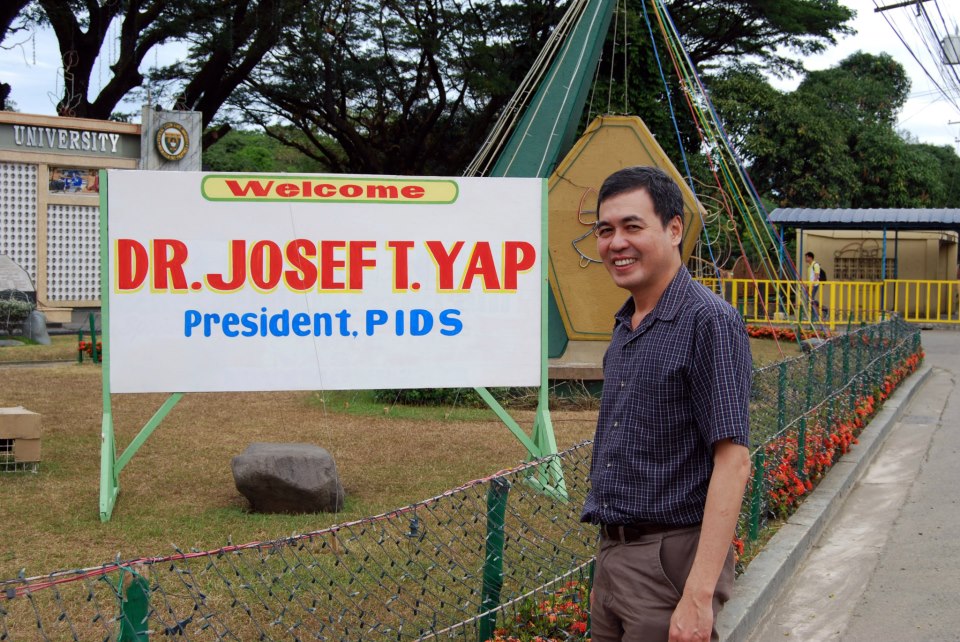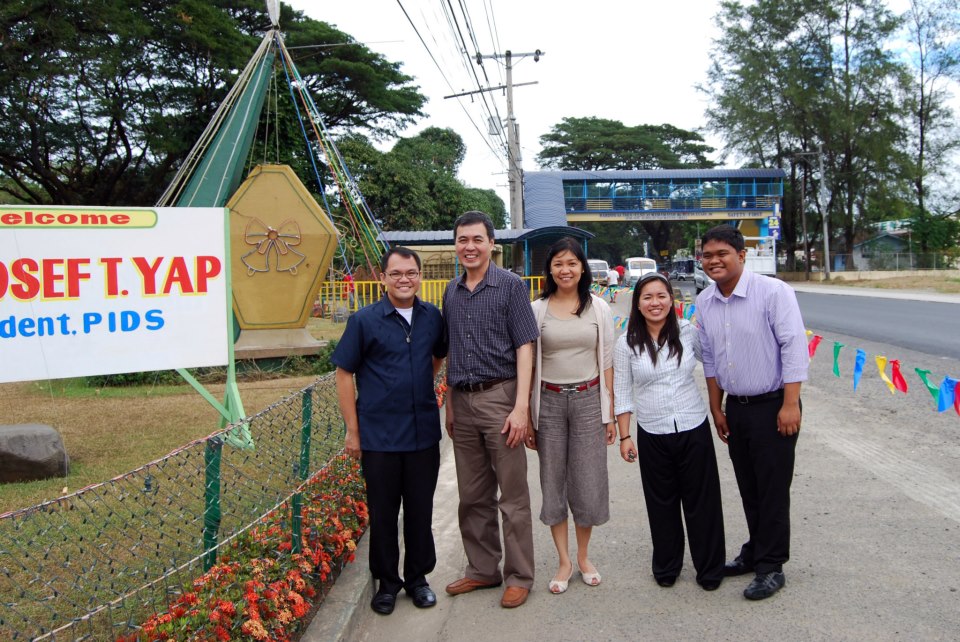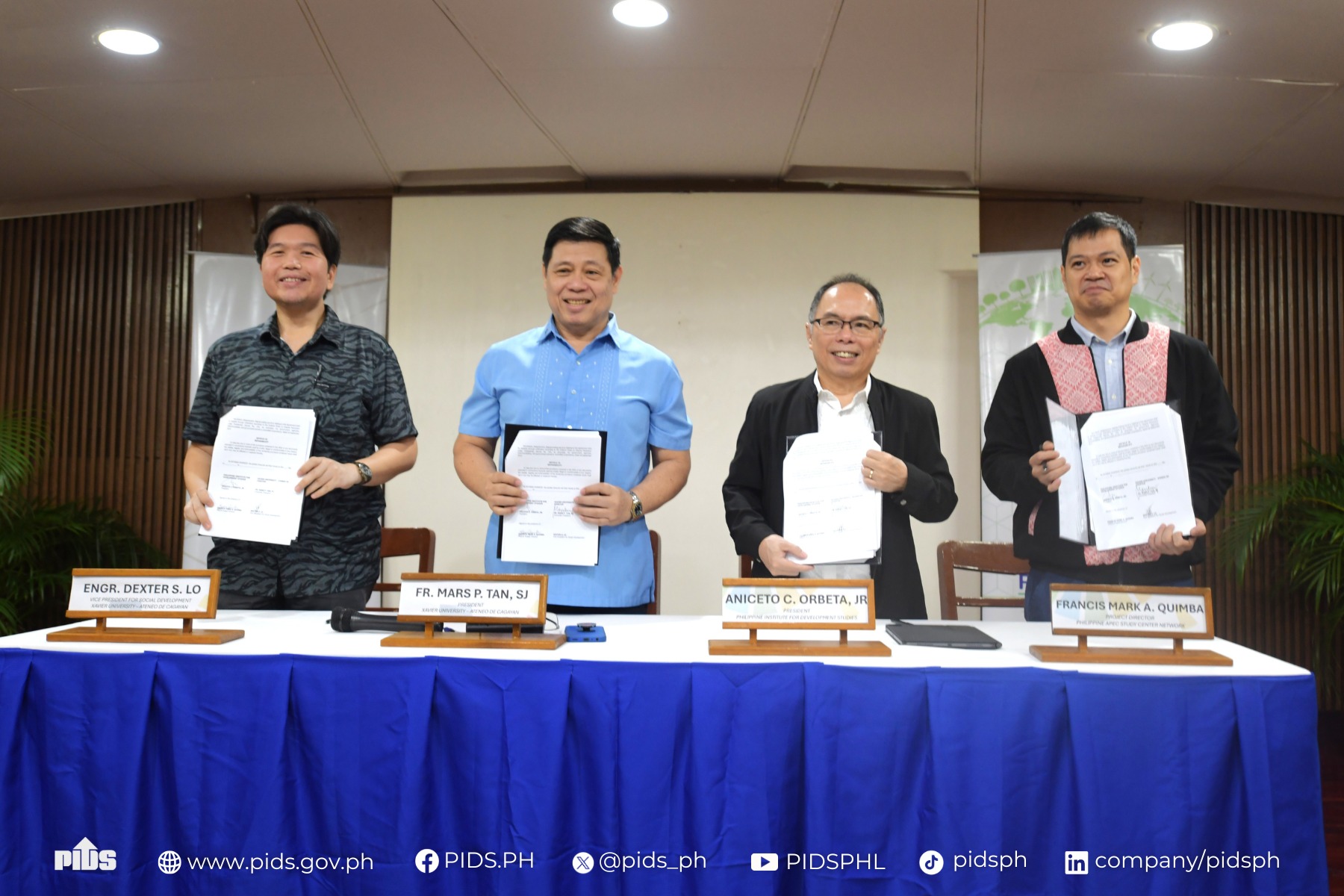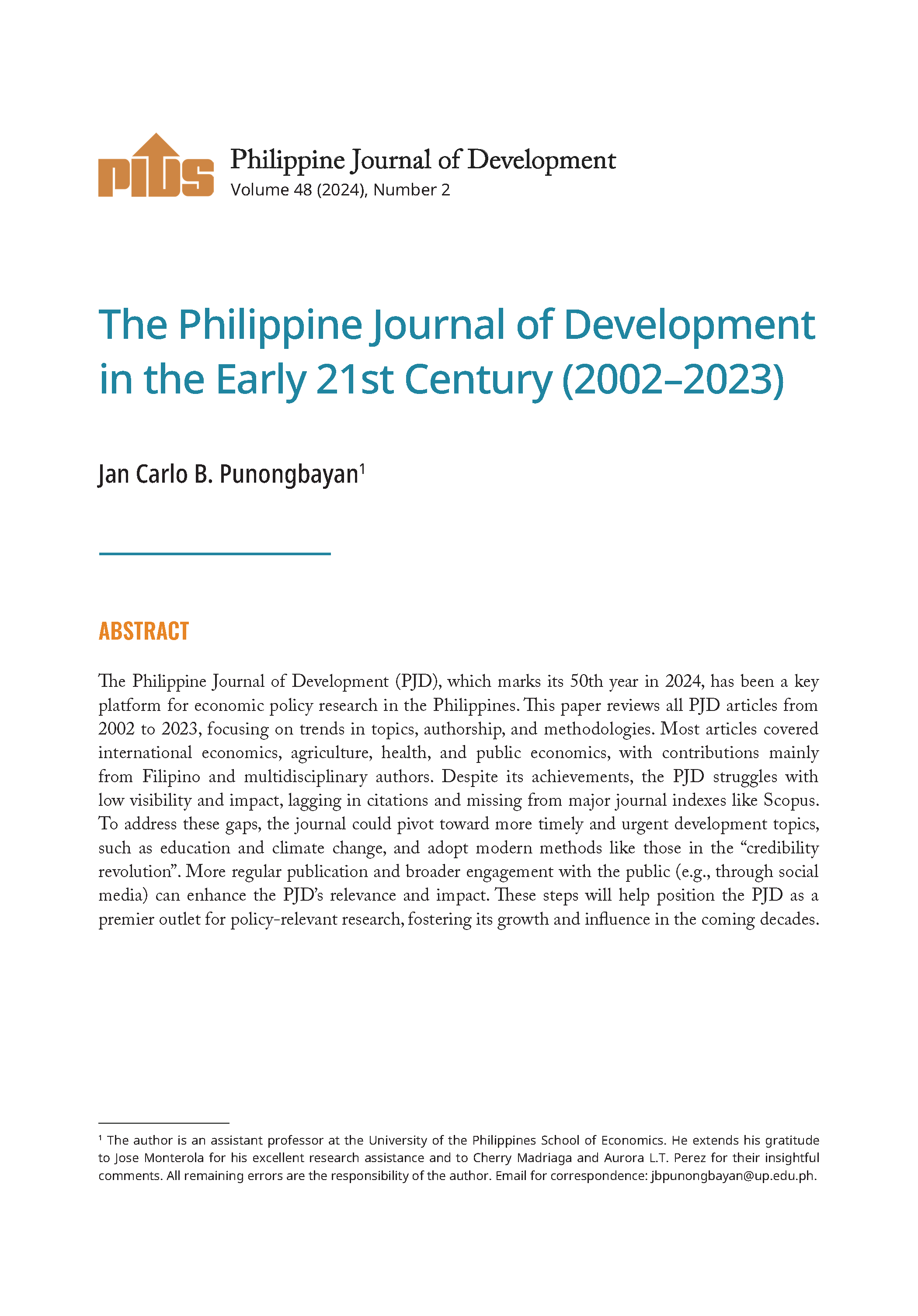
As part of its research dissemination efforts, the Institute inaugurated the 21st PIDS Corner last December 5 at the Central Luzon State University (CLSU) Library in the Science City of Muñoz, Nueva Ecija.
The PIDS Corner, one of the Institute's foremost research dissemination strategies, is aimed at providing reading and research materials on development-oriented topics to students, researchers, faculty, and policymakers in locations where there is a lack of such resources. The "Corner" provides shelves containing various studies and publications produced by the Institute and its research partners. These include books, research papers, discussion papers, journals, and newsletters.
The PIDS Corner at CLSU Library is the first of its kind in the Central Luzon region. Since inception in 2006, there have been 21 Corners (10 in Luzon, 6 in Visayas, 5 in Mindanao), strategically located in provincial libraries and public and private academic institutions all over the country.
Students, university officials, and local government executives attended the inauguration. PIDS President Josef Yap and CLSU President Ruben Sevilleja led the ceremonial ribbon cutting and signed the Memorandum of Agreement between both institutions. The signing, which was witnessed by CLSU Chief Librarian Zoraida Bartolome and PIDS Director for Research Information Sheila Siar, formalizes the partnership between PIDS and CLSU.
Delivering remarks in Filipino, Yap underscored the importance of the PIDS Corners as well as the Institute's partnership with universities and research institutions. He said, "Hangad din namin na mas maintindihan ng mas nakararami ang mga bagay-bagay na nangyayari sa ating ekonomiya; kaya bukod sa mga opisyal ng ating pamahalaan, ang mga pag-aaaral namin ay amin ding ibinabahagi sa mga eskuwelahan at mga pamantasan sa pamamagitan ng kanilang mga aklatan at gayun din sa ibang research institutions (We also aim to increase the public's literacy and understanding of issues that affect our economy; hence, aside from government officials, we also share our studies with academic and research institutions through their libraries)."
Meanwhile, Sevilleja thanked the Institute for bringing its studies closer to CLSU students and faculty members. He said it was imperative for CLSU, as an institution of higher learning, to continuously enrich its knowledge materials not only for students but also for the general public. The Corner provides a new platform for understanding how socioeconomic policies are crafted and how socioeconomic problems can be better addressed, he added.
To spur development discussions in the local area, PIDS Corner inaugurations are followed by a discussion forum on development-related topics by a PIDS senior researcher. For this occasion, Yap talked about "Regional Economic Integration and Inclusive Growth: The Role of the Manufacturing Sector."
In addition, Siar took the audience composed primarily of Economics students of the university on a "tour" of the Socioeconomic Research Portal for the Philippines (SERP-P), a Web-based knowledge resource of socioeconomic studies maintained by the Institute. SERP-P contains more than 5,000 publications produced by PIDS and other academic and research institutions.
The PIDS Corner, one of the Institute's foremost research dissemination strategies, is aimed at providing reading and research materials on development-oriented topics to students, researchers, faculty, and policymakers in locations where there is a lack of such resources. The "Corner" provides shelves containing various studies and publications produced by the Institute and its research partners. These include books, research papers, discussion papers, journals, and newsletters.
The PIDS Corner at CLSU Library is the first of its kind in the Central Luzon region. Since inception in 2006, there have been 21 Corners (10 in Luzon, 6 in Visayas, 5 in Mindanao), strategically located in provincial libraries and public and private academic institutions all over the country.
Students, university officials, and local government executives attended the inauguration. PIDS President Josef Yap and CLSU President Ruben Sevilleja led the ceremonial ribbon cutting and signed the Memorandum of Agreement between both institutions. The signing, which was witnessed by CLSU Chief Librarian Zoraida Bartolome and PIDS Director for Research Information Sheila Siar, formalizes the partnership between PIDS and CLSU.
Delivering remarks in Filipino, Yap underscored the importance of the PIDS Corners as well as the Institute's partnership with universities and research institutions. He said, "Hangad din namin na mas maintindihan ng mas nakararami ang mga bagay-bagay na nangyayari sa ating ekonomiya; kaya bukod sa mga opisyal ng ating pamahalaan, ang mga pag-aaaral namin ay amin ding ibinabahagi sa mga eskuwelahan at mga pamantasan sa pamamagitan ng kanilang mga aklatan at gayun din sa ibang research institutions (We also aim to increase the public's literacy and understanding of issues that affect our economy; hence, aside from government officials, we also share our studies with academic and research institutions through their libraries)."
Meanwhile, Sevilleja thanked the Institute for bringing its studies closer to CLSU students and faculty members. He said it was imperative for CLSU, as an institution of higher learning, to continuously enrich its knowledge materials not only for students but also for the general public. The Corner provides a new platform for understanding how socioeconomic policies are crafted and how socioeconomic problems can be better addressed, he added.
To spur development discussions in the local area, PIDS Corner inaugurations are followed by a discussion forum on development-related topics by a PIDS senior researcher. For this occasion, Yap talked about "Regional Economic Integration and Inclusive Growth: The Role of the Manufacturing Sector."
In addition, Siar took the audience composed primarily of Economics students of the university on a "tour" of the Socioeconomic Research Portal for the Philippines (SERP-P), a Web-based knowledge resource of socioeconomic studies maintained by the Institute. SERP-P contains more than 5,000 publications produced by PIDS and other academic and research institutions.
Gallery Images:

